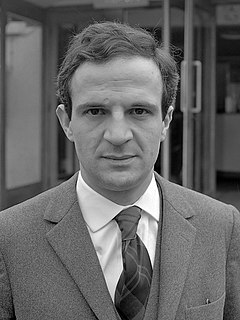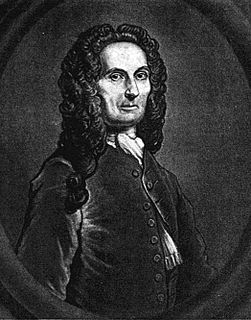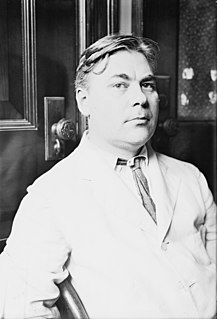A Quote by Francois de La Rochefoucauld
Men may boast of their great actions; but they are more often the effects of chance than of design.
Related Quotes
Further, the same Arguments which explode the Notion of Luck, may, on the other side, be useful in some Cases to establish a due comparison between Chance and Design: We may imagine Chance and Design to be, as it were, in Competition with each other, for the production of some sorts of Events, and may calculate what Probability there is, that those Events should be rather be owing to the one than to the other.
In the Small group the individual can know the effects of his actions on his several fellows, and the rules may effectively forbid him to harm them in any manner and even require him to assist them in specific ways. In the Great Society many of the effects of a person's actions on various fellows must be unknown to him. It can, therefore, not be the specific effects in the particular case, but only rules which define kinds of actions prohibited or required, which must serve as guides to the individual.
The difficulty in judging what type of behavior works well arises not only because a given course of action does not always produce the outcomes. Similar outcomes can occur for reasons other than the person's actions, which further complicates inferential judgment. Effects that arise independently of one's actions distort the influence of similar effects produced by the actions, but only on some occasions. Given a strong cognitive set to perceive regularities, even chance joint occurrences of events can be easily misjudged as genuine relationships of low contingent probability
A great many wise sayings have been uttered about the effects of solitary retirement; but the motives which impel men to seek it are not more various than the effects which it produces on different individuals. One thing is certain, that those who can with truth affirm that they are "never less alone than when alone," might generally add that they never feel more lonely than when not alone.
Yet is it possible in terms of the motion of atoms to explain how men can invent an electric motor, or design and build a great cathedral? If such achievements represent anything more than the requirements of physical law, it means that science must investigate the additional controlling factors, whatever they may be, in order that the world of nature may be adequately understood.
As it often happens that the best men are but little known, and consequently cannot extend the usefulness of their examples a great way, the biographer is of great utility, as, by communicating such valuable patterns to the world, he may perhaps do a more extensive service to mankind than the person whose life originally afforded the pattern.


































